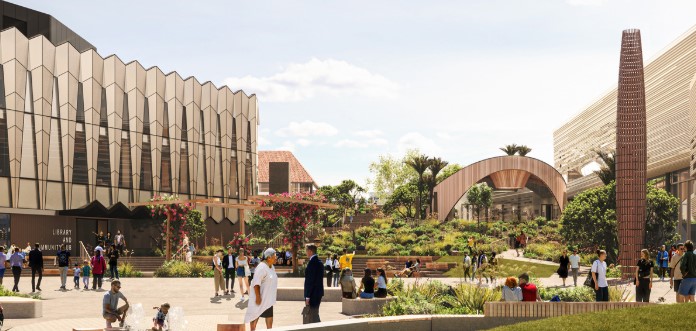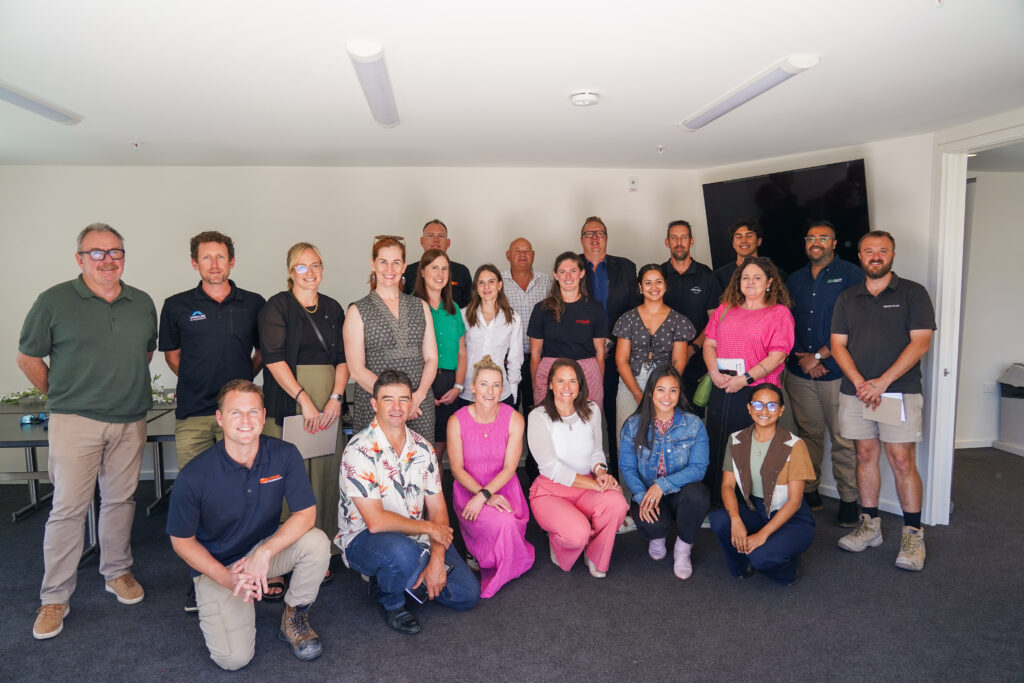Latest News
The Circular Construction Collective was established by Priority One’s Sustainability Lead, Marissa Nikora, in response to the huge waste issues around the construction and demolition industries (which contribute up to 50% of New Zealand’s waste).
Priority One’s 2022 CBD Blueprint forecasted Tauranga city centre was on track for around $1.5b worth of investment (now upgraded to over $2b), so the challenge of waste was flagged as an urgent issue, especially given our goals of creating a highly sustainable and resilient city.
A series of industry-led scoping workshops throughout 2023 offered key insights into waste management and diversion challenges, and highlighted the urgent need for collaboration. Consequently, the Collective was formed and now consists of 40 businesses across the wider industry (such as developers, demolition, builders, architects, material suppliers, project consultants and more).
The Circular Construction Collective held four workshops in 2024, plus a Priority One-led Sustainable Design information session and an XLabs Circular Economy workshop, based around the Built Environment. “The commitment from the Collective in its first year demonstrates that businesses want to make a change and are looking at ways they can do this,” says Marissa. At the final workshop, businesses shared details of the great inroads they’ve made into reducing waste. Below, we note notable accomplishments.

Mutu pilot
The Tauranga City Council-funded a pilot for the Mutu app, which was supported by Priority One, and was quickly identified as the first major initiative helping the industry take a regenerative approach, emphasising reducing, reusing, and recycling materials. “Mutu has been one of the early success stories for the Collective,” says Marissa.
Mutu is about arming the construction industry with digital tools to help decarbonise the construction sector, and save them money at the same time. Construction is the second least digitised industry in the world – second only to hunting and agriculture, and Mutu is an attempt to address that.
Users upload a photo of their surplus material to the app, giving details such as its location and weight. They then make the resource visible to other companies or organisations (including charities and schools) so the material can be claimed with a click, thereby diverting it from landfill and saving on procurement costs. A valuable feature of Mutu is the data capture – with real-time data on procurement costs and CO₂ emissions saved from avoiding landfill.
Mutu pilot: quick stats
Eight local businesses were selected for the pilot: Marra Construction, Letts Construction, Higgins, Flowerday Homes, CBC Construction, Matco Contractors, Brunel Construction and Gartshore.
Number of users: 39
Number of sites active across Tauranga: 66
Total material value added to Mutu: $224,456.33
Total material weight added to Mutu: 94.9 tonnes
Total material value repurposed using Mutu: $150,454.20
Total material weight repurposed using Mutu: 76.74 tonnes
Total CO2 waste emissions redirected from landfill:10.74 tonnes (this is the equivalent carbon produced by a car driving the length of Aotearoa 12 times, or a return flight from Auckland to London).
Flowerday Homes
Flowerday Homes co-owner, Fiona Flowerday, says that responsibility is a key company value, which encompasses minimising waste and conserving resources, so the Collective was a natural extension of their efforts. “Flowerday Homes have been a great supporter of the Collective from the beginning,” says Marissa. “They have been really committed to achieving significant results, it’s fantastic to see them test this on their Te Mania development in Te Puke.”
Flowerday Homes Mutu state for third quarter 2024
– Created more than 100 listings and completed more than 25 transactions.
– Repurposed $12k of materials back into other projects that would have otherwise been destined for landfill.
– Kept 230kg of materials out of landfill and saved over $1000 in disposal costs.
“Outside Mutu, our initiatives to recycle what we can and refine our procurement processes means instead of having 2-3 nine cubic metre general waste bins per job (depending on the size of the house), we now have one. Still too much but it’s a work in progress!” says Fiona.

Other noteworthy achievements by Collective members
Fosters received the 2024 Boffa Miskell Excellence in Sustainability Award for the Metlifecare Somervale Village Redevelopment Stage 1 project at The Central Property People Awards in November 2024. This mass timber building was one of the first in the Bay of Plenty to receive a 7 Homestar Built rating. The team surpassed their sustainability targets by diverting more than 80% of the 232 tonnes of waste generated.
LT McGuinness constructed the new TCC building at 90 Devonport Road, the largest mass timber office building in Aotearoa, which has set new benchmarks in building sustainability in Aotearoa, and has been awarded a 6 Green Star Certified Design Rating. The company is currently working on development of Te Manawataki o Te Papa in the city centre (render, above).

Next up for the Circular Construction Collective
Plasterboard has been identified as a significant opportunity for the city, with details currently being worked through (e.g. organising a central collection point for offcuts and developing a delivery system). Several of the Collective businesses are ready to test the pilot. Also, Envirocon is looking to launch a concrete initiative in early 2025, and plastic and treated timber are also at the top of the list for further investigation.
If you would like to be involved in the Circular Construction Collective in any capacity, please contact Sustainability Lead Marissa Nikora at marissa@priorityone.co.nz
